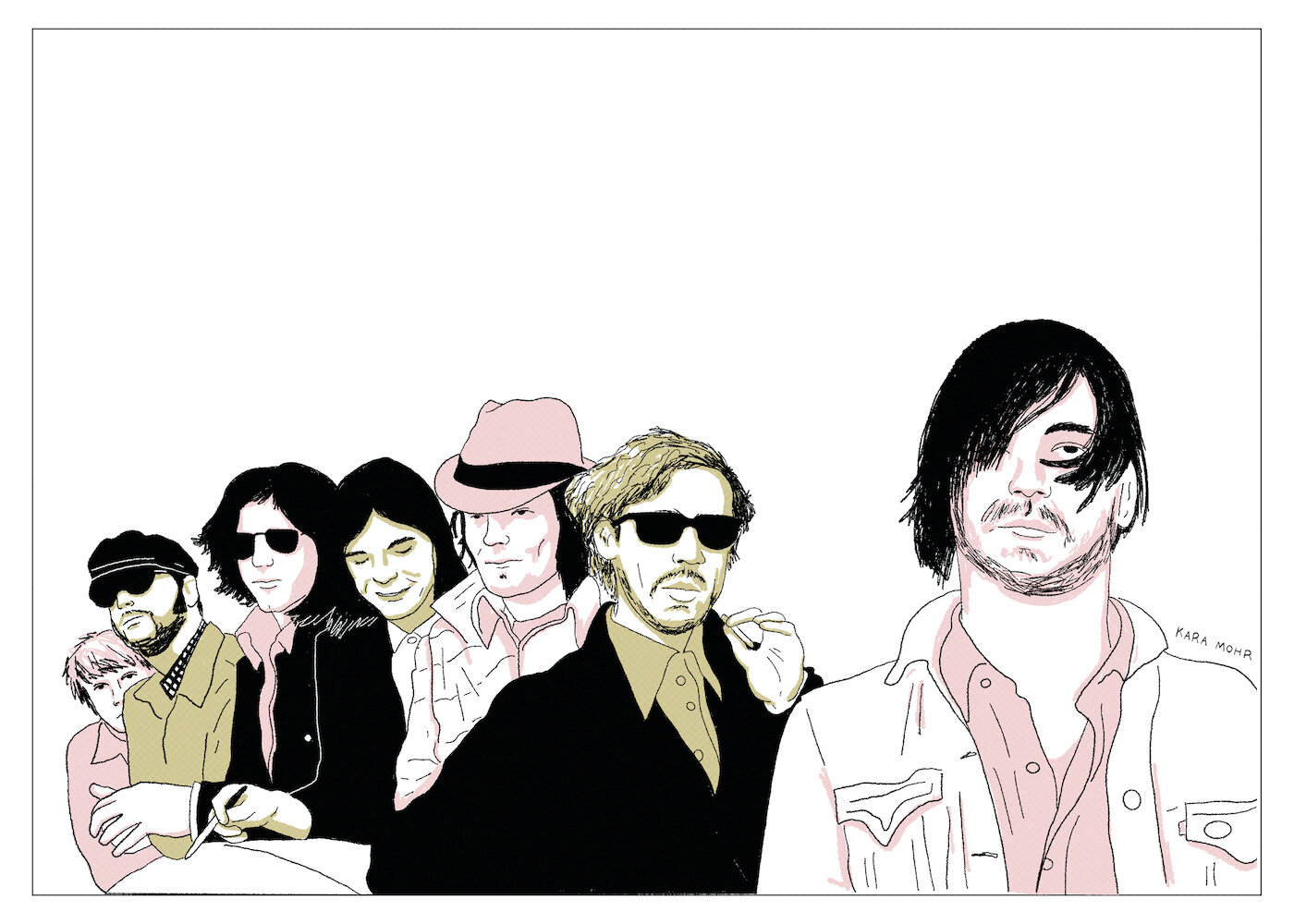
The Brian Jonestown Massacre “Aufheben”
After a decade teetering between revelation and annihilation, Anton Newcombe followed his heroes and moved to Berlin. There, he got married, got sober, became a dad and hit reset. His music, which had always contained multitudes, sounded just slightly different in middle age — more curious and eclectic. The auteur I first heard in 1996 seemed like a man living to die. New Anton appeared open to the alternative. There’s a German word for this relationship between thesis and antithesis. It’s “Aufheben.”
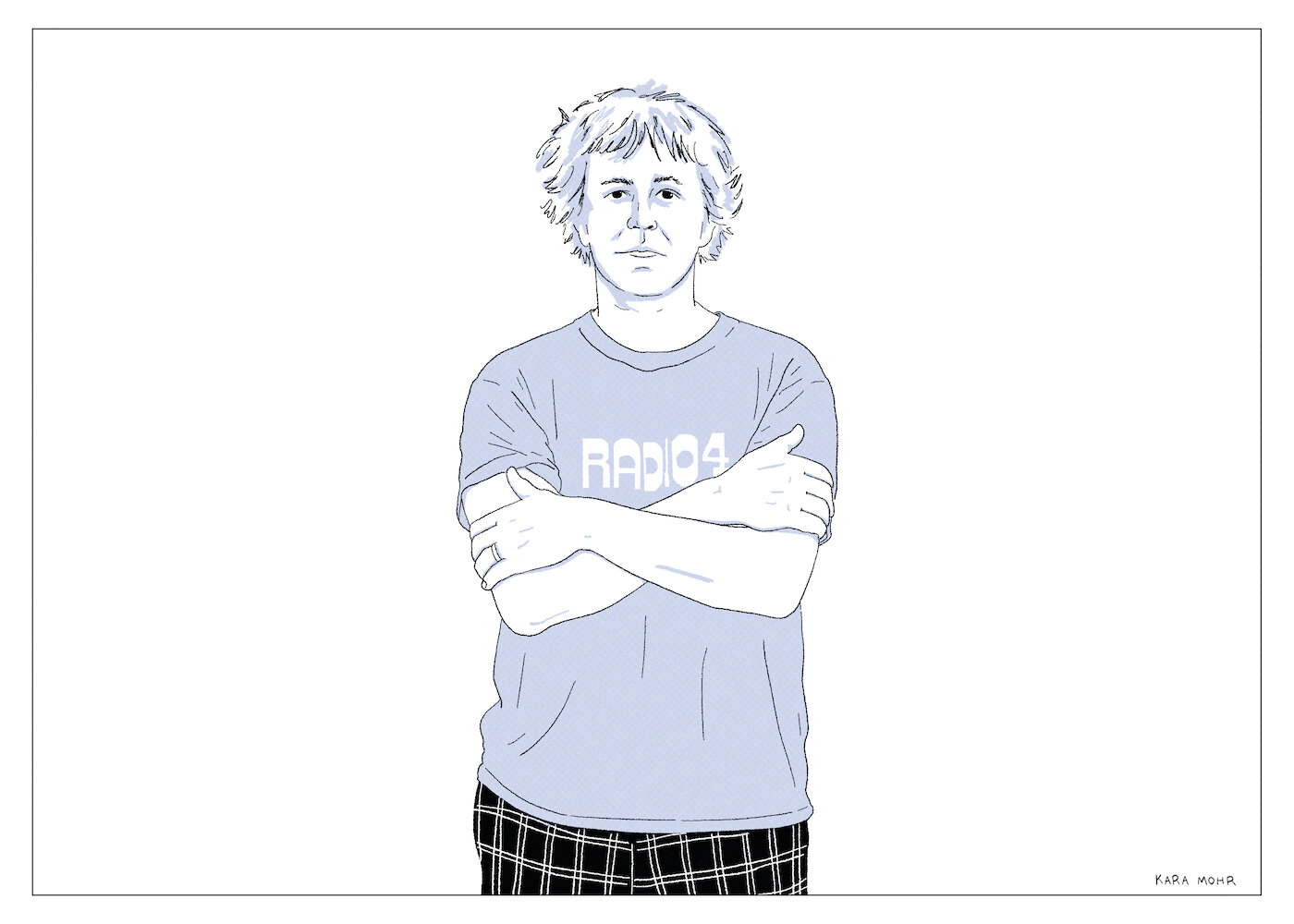
Guided by Voices “Earthquake Glue”
“Earthquake Glue” is the second to last album from GBVs legendary first run. It is the music of a brilliant Pop chemist, forced to choose between the tiredness of a job and the joy of amateurism. It is the music of a middle aged man who can can write a thousand songs. Who can teach elementary school. Who can throw a no hitter. Who can drink an ocean of beer. But who can’t do it all at once. At least not professionally.
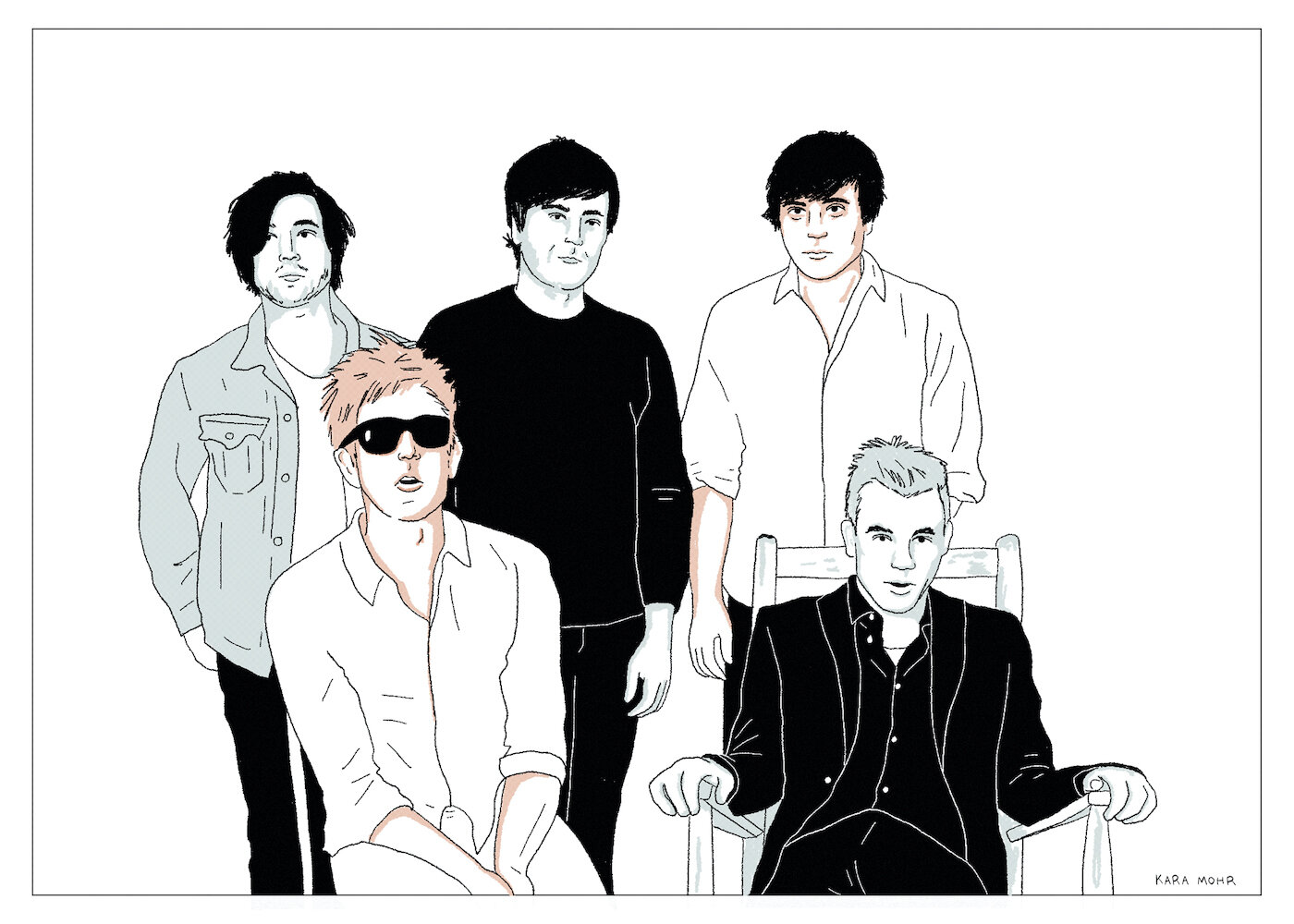
Spoon “They Want My Soul”
Though he strikes a formidable pose in concert and in photos, Britt Daniel is an unlikely, and grudging celebrity. By 2011, and against all odds, he was in a full blown relationship with stardom. And Britt maybe wanted to break up. Divine Fits seemed like the perfect distraction — all fun and little fame. It seemed like exactly what he needed. It may have been close. But, it was evidently not enough. The evidence, in this case, is Spoon’s 2014 release, “They Want My Soul.”
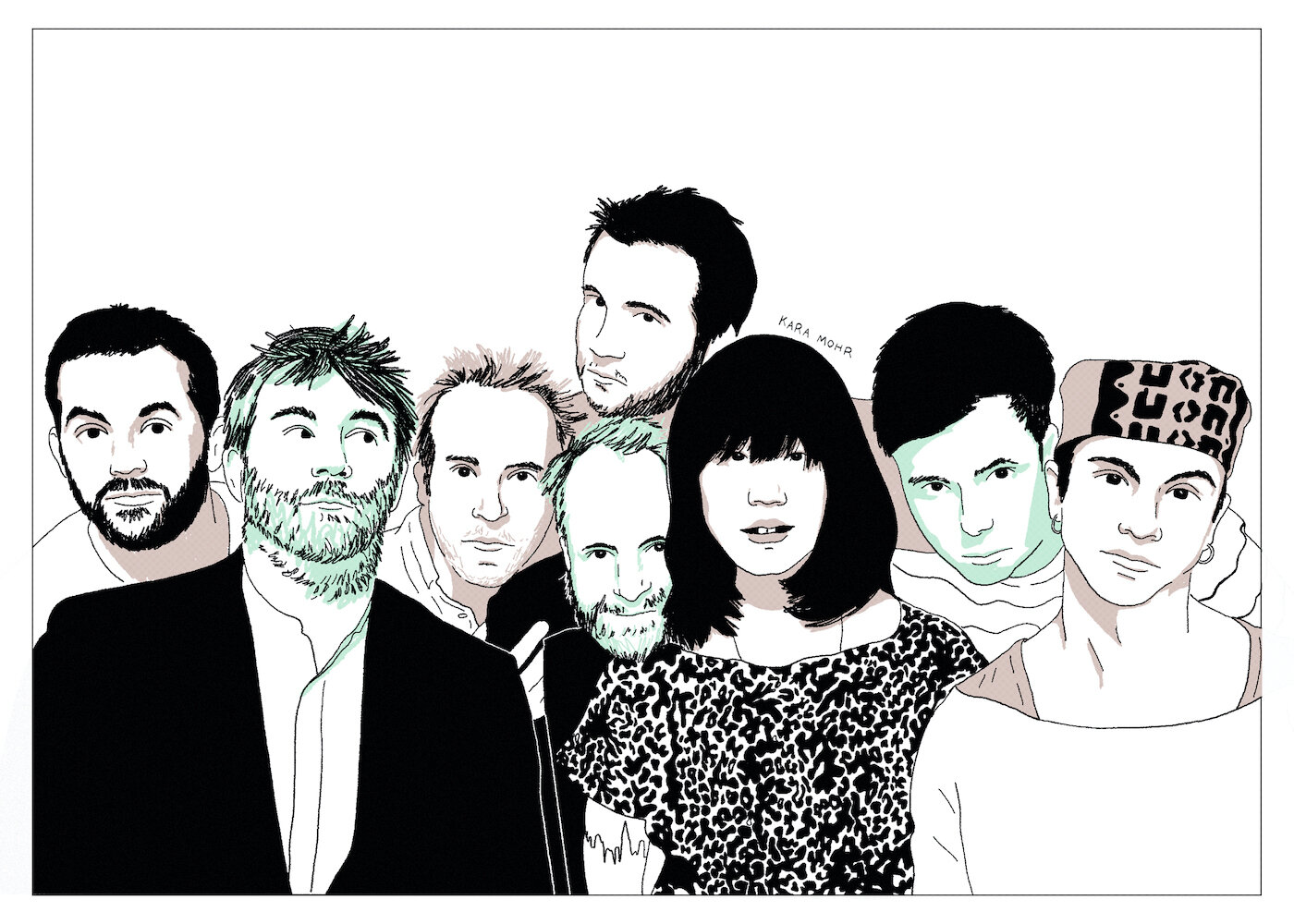
LCD Soundsystem “American Dream”
The first time I met James Murphy, we passed each other as he entered the tiny South Williamsburg bathroom that I was exiting. It was 2001. It was very late. It was barely a moment, but I do recall thinking that he looked like an imprecise man. Within a couple of years, I would realize how wrong that impression was. James Murphy, the musician, was impossibly precise. Now, nearly two decades later, I find it hard to conjure any such precision in writing about LCD Soundsystem’s 2017 “reunion” album, “American Dream.” My challenge is in part a challenge of psychiatry -- how well can I parse memories. But it is also a challenge of ego -- how well can I avoid projection without sounding like the desperate subject from “Losing My Edge” or like I am plagiarizing “All My Friends.”

Yo La Tengo “I Can Hear the Heart Beating as One”
In early 1997, the internet was barely a thing. It was late Clinton era. There was no war. People had jobs. Nothing felt great but everything was “pretty good.” Music, on the other hand, sucked. Those first few months of that year were an odd moment. We were just months away from a seismic event in music, after which, everything would be different. Bigger. More meta. Radiohead would soon release “OK Computer” and Earth would shake. But, just before then, Yo La Tengo did something impossible. On their eighth LP, in middle age no less, the trio from New Jersey quietly, almost reluctantly, became the best band on the planet.

Bonnie “Prince” Billy “Wolfroy Goes to Town”
In the years after his beloved “I See a Darkness,’ Will Oldham aged comfortably into his Bonnie character. Each year, we would get a new album. We wouldn’t know when it would arrive or what it might sound like, much less what it meant. But it would come. And it would generally be excellent. And then something similar, but different, would happen the next year. Behind Oldham’s warble there was Cheyenne Mize. Then, Ashley Webber. And then, in 2011, on “Wolfroy Goes to Town,” it was the great Angel Olsen.
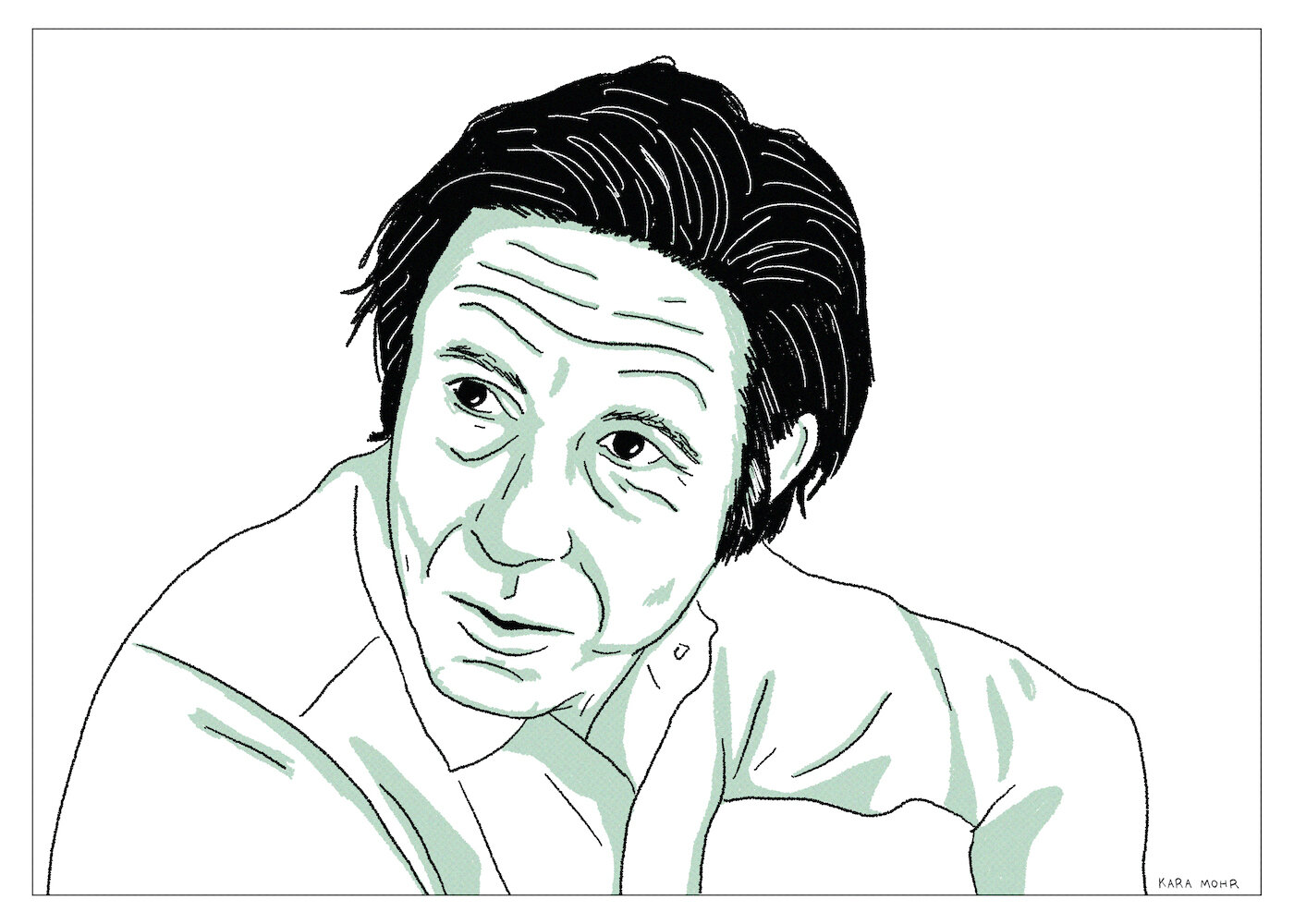
John Doe “Keeper”
John Doe’s voice was once the sound of a storm cloud over a city on fire. The city was Los Angeles. The storm was sun shower named Exene Cervenka, Doe’s wife and partner in the band X. But, nearly seventy now and many years into a decorated solo career, John Doe has spent his second act answering the question: what happens when there is no city on fire and no storm below? In 2011, the year he released “Keeper,” Doe was fifty eight. He’d remarried. He had three daughters. He didn’t live in L.A. His singular challenge was to write love songs where the people in the songs are actually loved. Simple, right?
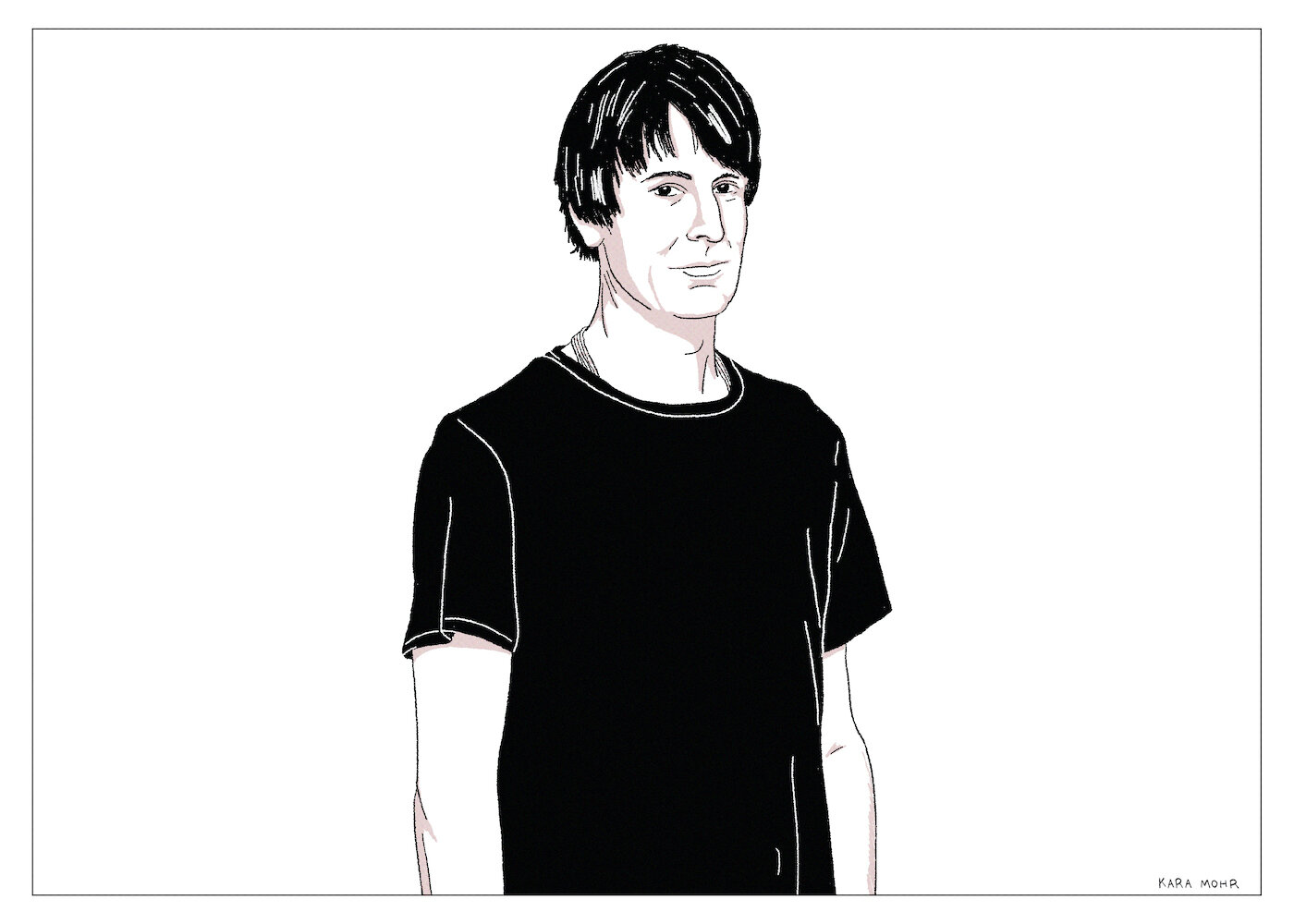
Stephen Malkmus “Traditional Techniques”
Pavement broke up but Stephen Malkmus kind of stayed the same. He moved to Portland. He got a new band together. Every two to three years he would release an A- album. I listened to some of them. They were uniformly very good to great. It became easy to take Malkmus for granted. There was nothing not to like but it was getting easier to pass over. Surely, Malkmus himself felt some of this. First there was the solo electronic jams on “Groove Denied.” and then came “Traditional Techniques,” wherein Stephen Malkmus daringly and beautifully articulates the search and the journey.

Thom Yorke “Tomorrow’s Modern Boxes”
Let’s face it, Radiohead is a lot of work. You have to commit fully. You need to join the listservs and the Reddit threads. You need to belong to a special mailing list for clues. You may even have to be Vegan. I don’t know. However, I saw a possible back door into the discourse: Thom Yorke solo. Whereas “Eraser” seemed too close to the motherland for a starting point, 2014s “Tomorrow’s Modern Boxes” seemed like a shorter, safer point of entry.
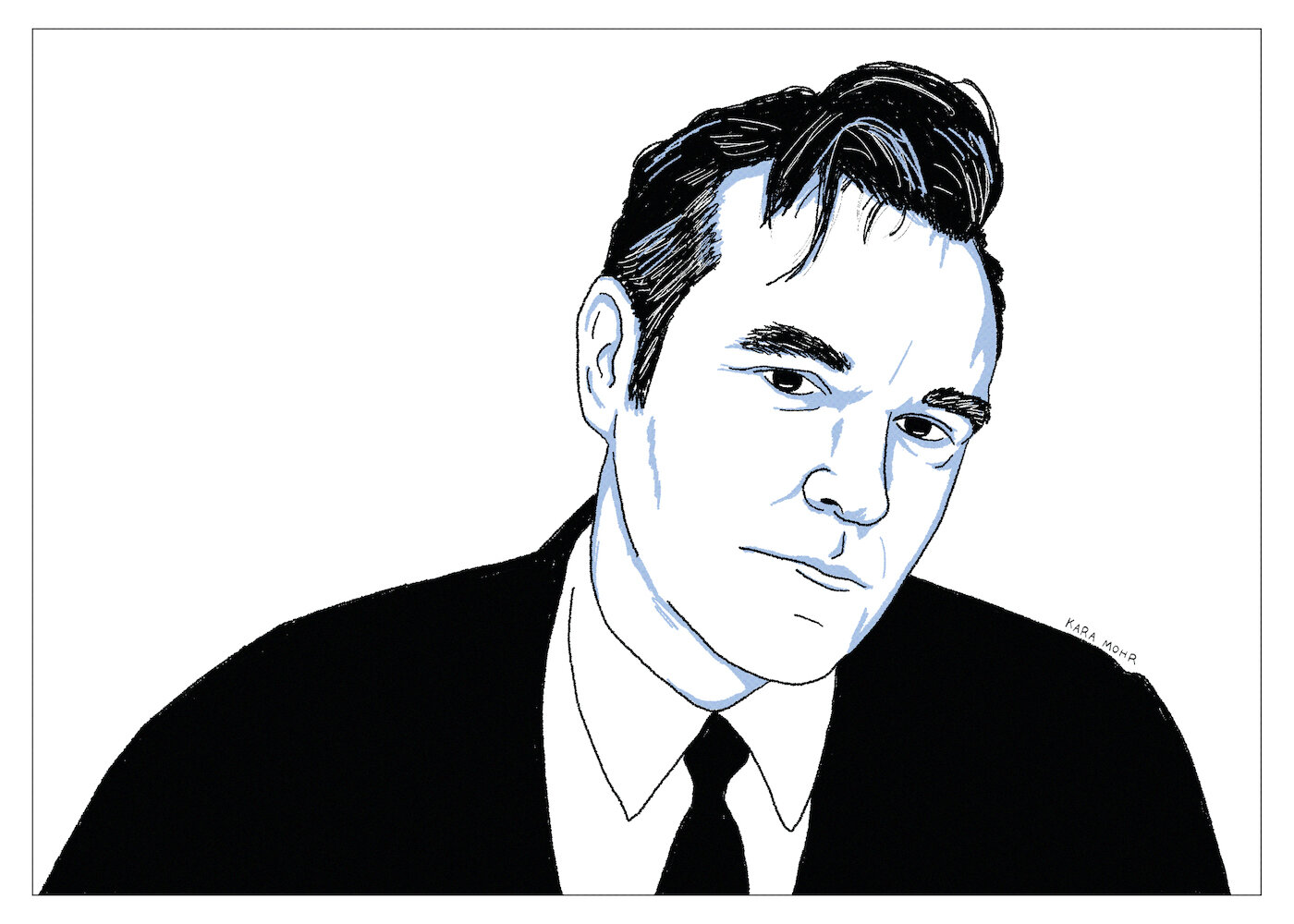
Morrissey “You Are The Quarry”
After the somewhat ignorable “Maladjusted” from 1997, Morrissey would wait seven years before returning with “You Are The Quarry.” In the interim, he would move to Los Angeles, very reluctantly resolve a lawsuit with his former drummer and, most notably, search in vain for a new record deal. By 2004, though, much of this would be behind him. He signed a deal with a new label and had a suitcase full of heartache and venom to offer up to his long suffering fans.
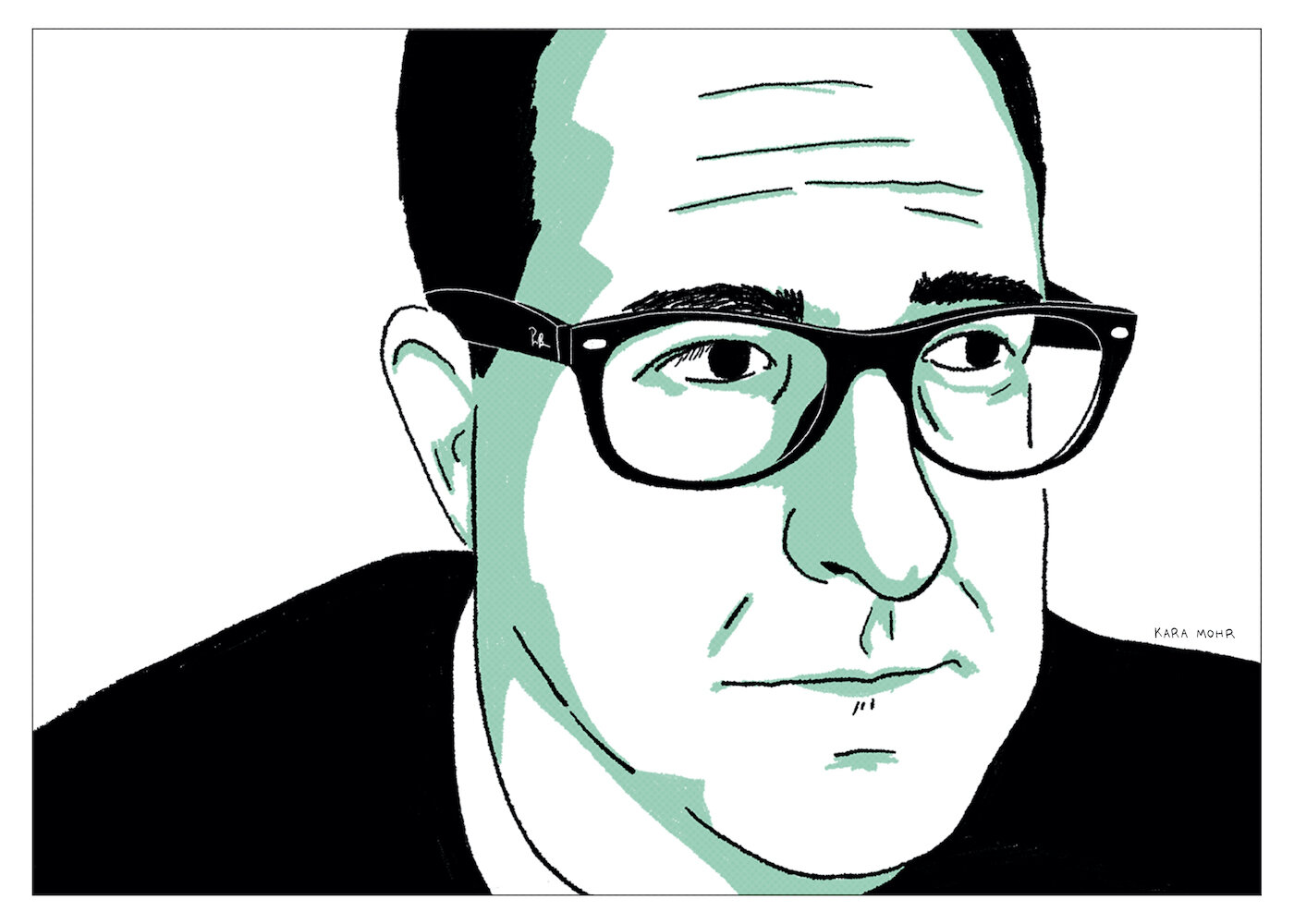
Craig Finn “I Need a New War”
Craig Finn was always a writer first, singer next and, vaguely, finally a musician. But the guy is both smart and clever and he is evidently committed to learning. So, I had faith his music would get somewhere. “I Need a New War” mostly validates my faith. The songs are not uniformly compelling on their own, but it is a genuine master class in a certain middle-aged, poignant weariness. “I Need a New War” replaces the drunk, Brooklyn gusto of The Hold Steady with an Upstate sobriety and poignancy.
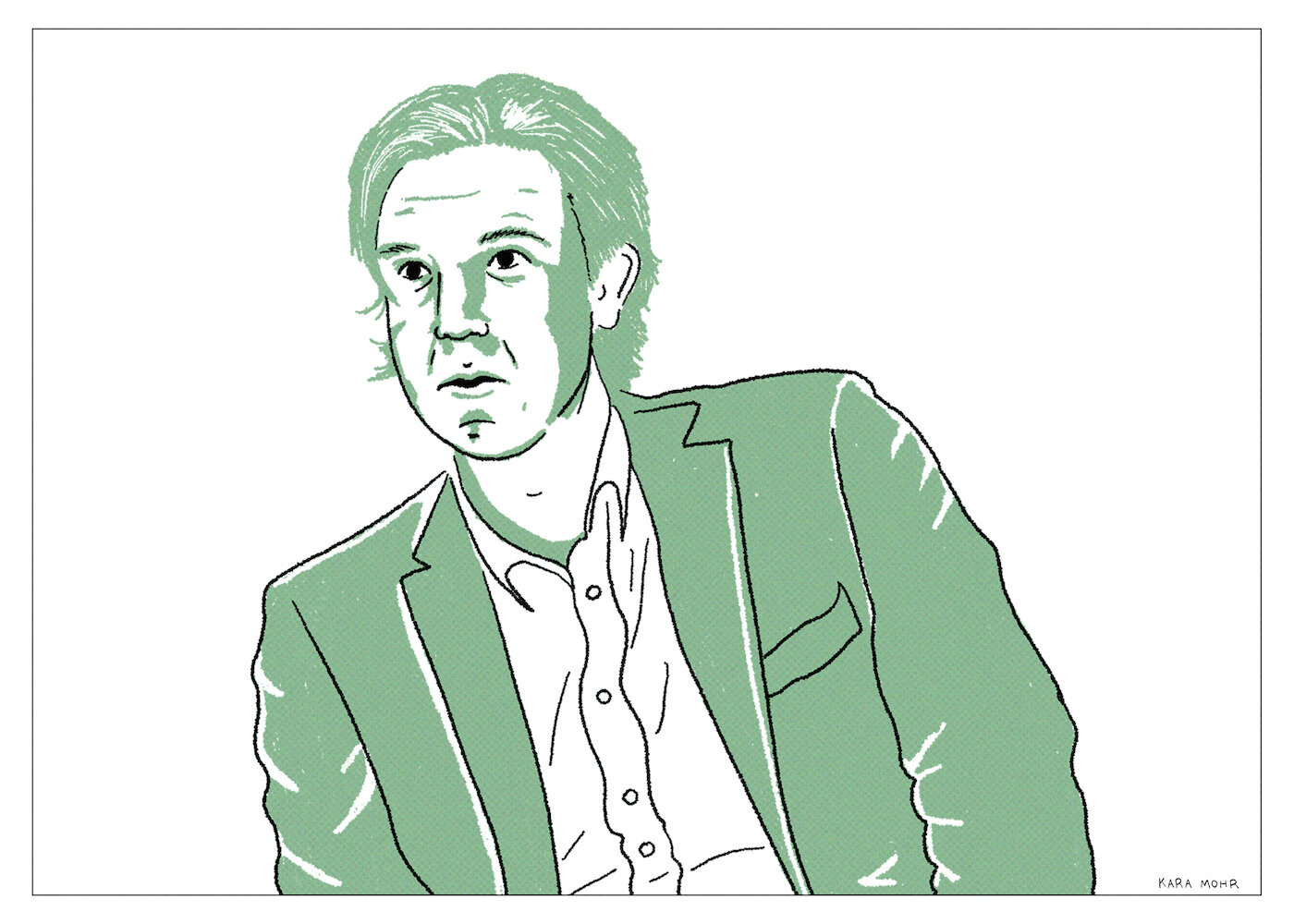
Hamilton Leithauser “The Loves of Your Life”
“The Rat” is the actual sound of Lower Manhattan in the early 21st century. Not The Strokes. That’s the cleaned up version. “The Rat,” by The Walkmen, is the secret, frustrated, smart and just a little dangerous New York. And for more than a decade, you got the feeling that the singer in that band was not content just making great music. No. Each time out, Hamilton Leithauser was going for “Like a Rolling Stone.” But, how do you balance that soaring ambition with middle-age, marriage and fatherhood? The answer lies where we find Hamilton Leithauser in 2020 on “The Loves of Your Life.”

Nick Cave and The Bad Seeds “The Boatman’s Call”
“The Boatman’s Call” is the album wherein Nick Cave ascends from Art Punk poet, to spiritual Folk singer. “Murder Ballads,” considered a career apex at the time, came in 1996. Then, like a drenching storm, “The Boatman’s Call” arrived one year later and the band no longer sounded like it was playing in a back country Aussie church. No -- they sounded like they were playing in Nick Cave’s living room, on Persian rugs, watching the ocean, singing directly to you.
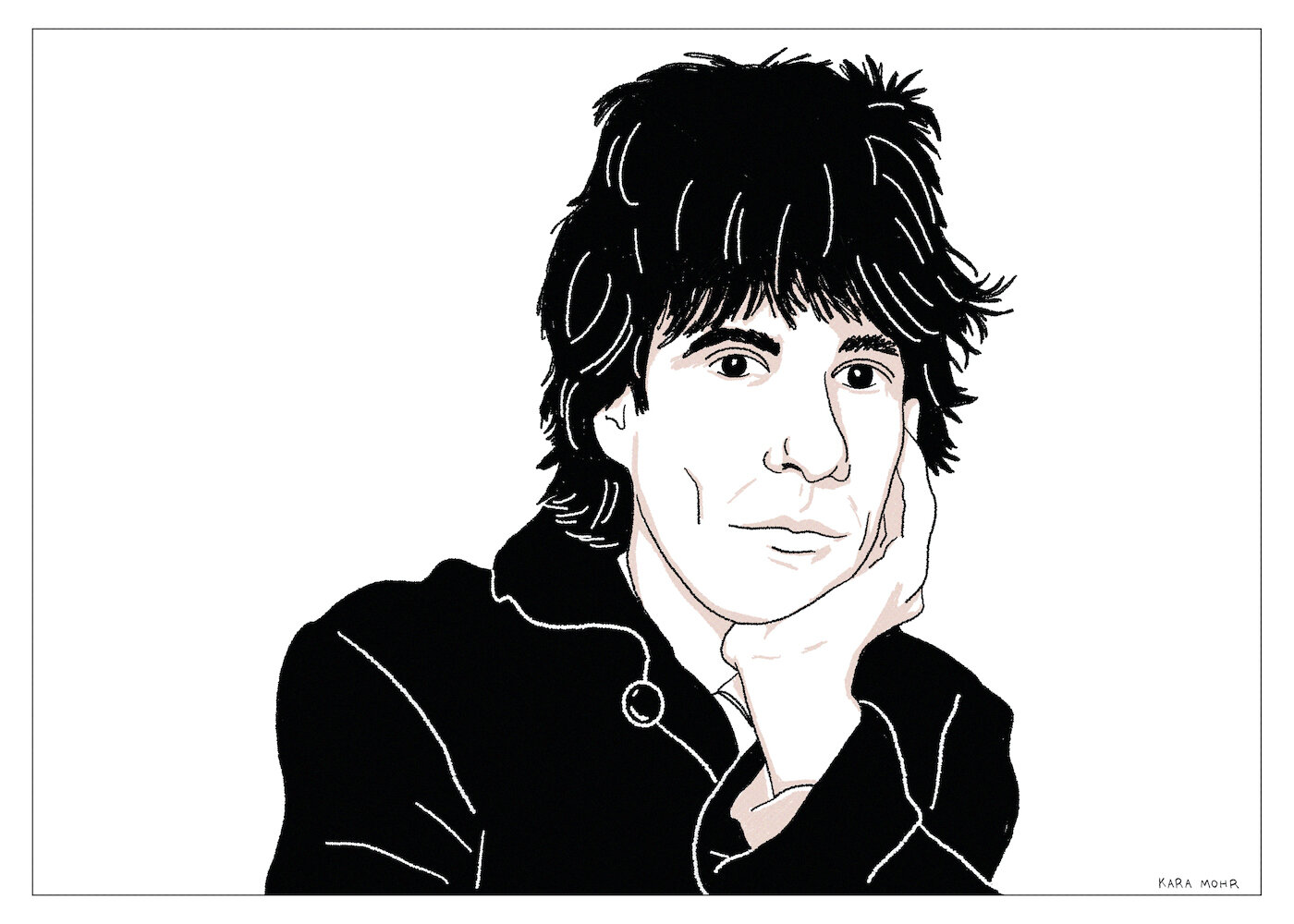
Paul Westerberg “Folker”
Westerberg solo and sober had difficulty finding his voice. When he rocked with expensive producers he sounded like watered down Replacements. When he switched to a piano and tried to be a singer songwriter, he sounded like a morose Carole King. Fans began to move on. But then, something happened. The malcontent outcast found his voice again. “Folker” is desperate middle-aged music. Also-ran music. Music about regret and compromise. Music written from your knees.
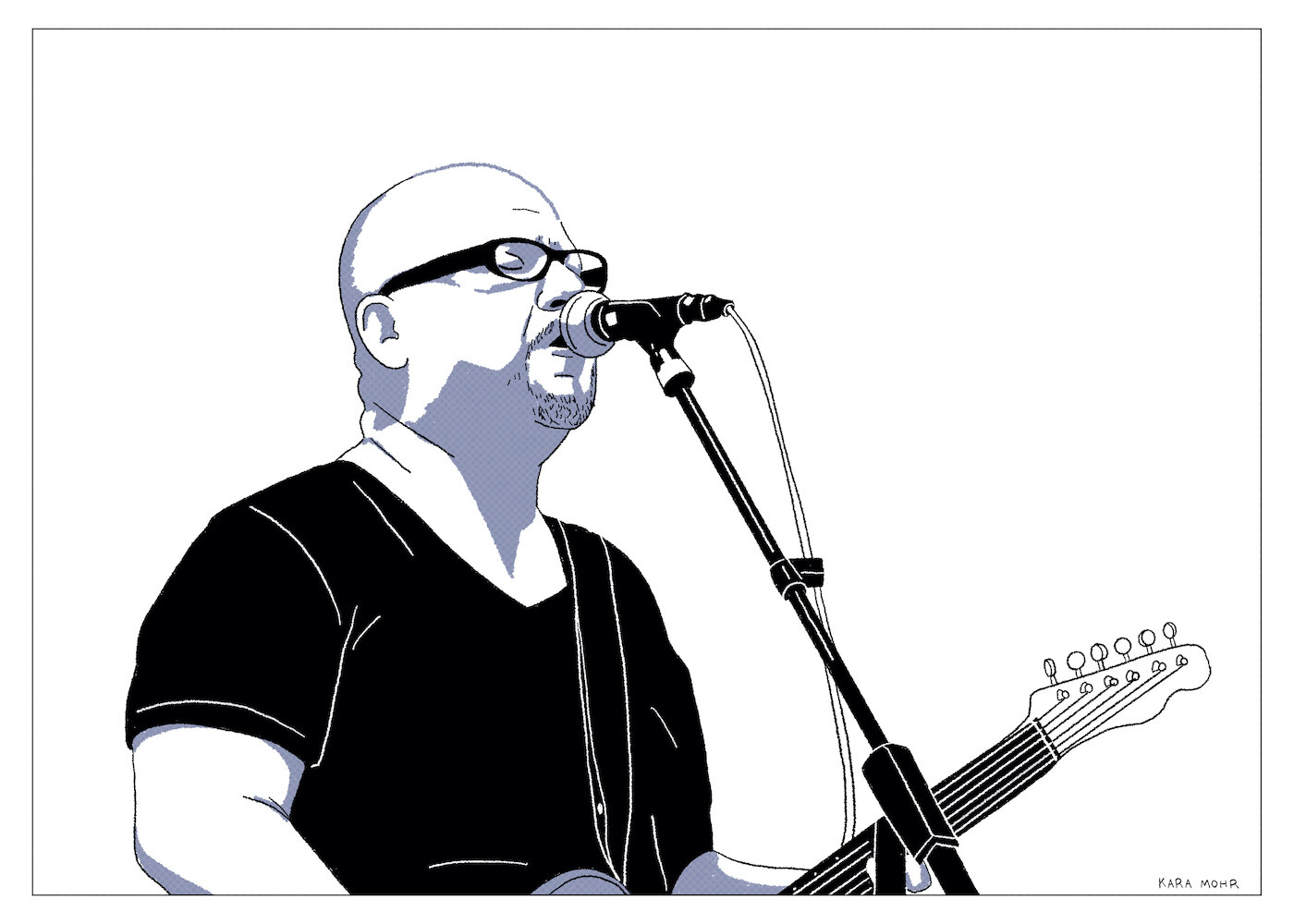
Frank Black “Honeycomb”
In 2005, nearly twenty years after he founded The Pixies, a whole bunch of shit happened to Frank Black. The Pixies simply could not work together and cancelled a tour. And, sadly, his marriage of sixteen years ended. So, Frank Black went into therapy to figure out what he needed to do. The “what” apparently was to head to Nashville, assemble a group of legendary session players, and finally record his “Black on Blonde” record.
